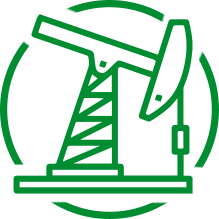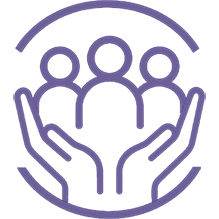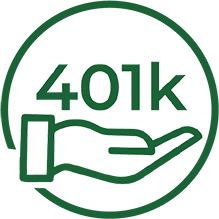Deforestation-risk companies
Deforestation Free Funds tracks companies exposed to deforestation risk across six commodities: palm oil, paper/pulp, rubber, timber, cattle, and soy. The companies are grouped by business types: agricultural commodity producers and traders, banks and lenders, and major consumer brands.
Company profiles
Archer-Daniels Midland
Archer-Daniels Midland (ADM) is a global processing company for food and beverage, nutraceutical, industrial, and animal feed products. The company's operations have long been tied to allegations of deforestation and land-grabbing through its soy production, particularly in the Brazilian and Bolivian Amazon. Deforestation in the Amazon often begins with land speculators illegally clearing and burning large areas of forests and then selling this land to ranchers for the production of beef and soy, which then goes to ADM and other global traders.
Bunge
U.S.-based Bunge is one of the world's largest commodity traders and is part of the so-called "ABCD group" made up of Archer Daniels Midland (ADM), Bunge, Cargill, and Louis Dreyfus Company, which dominate the global grain trade. In 2018, Bunge was among a group of agricultural traders fined by the Brazilian Institute of Environment and Renewable Natural Resources (IBAMA in its Portuguese acronym) for purchasing 3,000 tons of soy and other grains from farms previously embargoed for destroying native vegetation in the Cerrado, one of Brazil's most biodiverse ecosystems.
Indofood Agri Resources
Indofood is one of Indonesia's biggest corporations. Neither Indofood nor its palm oil division IndoAgri have adequate policies and practices in place for responsible palm oil production and sourcing. Indofood Agri Resources' subsidiary London Sumatra Indonesia has been implicated in offenses including child labor, gender discrimination, and toxic working conditions. Several of Indofood's large buyers - including Nestlé, Cargill, Hershey's, Kellogg's, Unilever, and Mars - have cut ties to the company, leading Indofood Agri Resources' share price to drop by 75% between 2014 and 2018. The CEO of Indofood Sukses Makmur, Anthoni Salim, has come under scrutiny for his other palm oil businesses, which have illegally cleared substantial areas of peatlands in Borneo and been continuously embroiled in serious land conflicts in West Papua.
JBS
JBS is the largest animal protein company in the world and the leading beef processor, with operations in Brazil, Canada, the U.S., and Australia. The company has a notorious history of corruption in Brazil, where its employees and leadership have been linked to various bribery scandals, including the bribing of three Brazilian presidents and an additional 1,829 elected officials, the misappropriation of $385 million in public funds, and insider trading. Recent reports also show how JBS sources cattle from companies fined for illegal deforestation and slave labor practices in areas in the Brazilian Amazon, despite claiming to adhere to rigorous social, environmental, and traceability criteria. While JBS and its Brazilian competitors have made strides in ensuring traceability of direct cattle suppliers, they have not provided consistent assurances that farms that sell to their suppliers (secondary suppliers) are not involved in illegal deforestation and human rights abuses.
Tyson Foods
Tyson Foods is the second largest processor of chicken, beef, and pork in the world. The company has been accused of using conflict palm oil and factory-farmed meat and has an inadequate palm oil procurement policy. Tyson Foods has recently expanded operations to nine countries, significantly increasing its potential exposure to deforestation. In October 2019, the company announced it would conduct an assessment to identify deforestation risks across its supply chain and develop a Forests Protection Policy in 2020. In the U.S., the company has been involved in several lawsuits related to air and water pollution and has been fined millions of dollars by the EPA as a result.
FGV Holdings
Malaysian national palm oil conglomerate Felda Global Ventures (FGV) has long faced complaints about severe and ongoing labor abuses. In 2018, Felda was sanctioned by the Roundtable on Sustainable Palm Oil for labor violations and is currently facing a potential import ban in the U.S. due to concerns that its abusive labor practices may violate U.S. Customs laws.
Source information:
Glencore
Glencore PLC, a British-Swiss commodity company, is one of the world's largest mining and agriculture conglomerates. Glencore Agriculture, in which Glencore PLC is significantly invested, is one of the larger soybean traders in Brazil. Research from 2019 finds that "Glencore Agriculture has committed to zero-deforestation value chains, but its commitments are not in line with the core principles proposed by the Accountability Framework," a set of common norms for ethical supply chain commitments in agriculture and forestry. Similarly, while Glencore has committed to monitoring its soy supply chain, it has not committed to ending deforestation in the Brazilian Cerrado, which continues at alarming levels. Glencore's mining operations in the Democratic Republic of Congo have faced allegations of corruption and bribery following the release of the Paradise Papers and have also been implicated in driving deforestation. In 2018, Glencore PLC subsidiary Glencore Ltd. was subpoenaed by the U.S. Department of Justice in relation to company operations in the DRC, Nigeria, and Venezuela. Glencore was also previously involved in mining projects in the Philippines that were suspended due to negative environmental impacts, including deforestation.
Source information:
Golden Agri-Resources
As the world's second-largest palm oil company, Golden Agri-Resources (GAR) has a record of driving deforestation and land conflict while nominally engaging in apparently extensive sustainability efforts. Currently, GAR faces numerous Roundtable on Sustainable Palm Oil (RSPO) complaints, including claims that the corporation controls more than 1,000 square kilometers (386 square miles) of land in Indonesia, in excess of the legal limits, as well as complaints related to land-grabbing and an opaque corporate structure. GAR subsidiary Sinar Mas had several executives arrested for bribery in Indonesia in late 2018. Golden Veroleum Liberia (GVL), in which GAR is the primary investor and appears to maintain operational control, has failed to address RSPO and civil society demands that it stop clearing land and resolve land conflicts after being found guilty of ongoing violations in Liberia. GVL's abuses in Liberia have included illegal deforestation, destruction of endangered chimpanzee habitat, and frequent allegations of violence and coercion to forcibly take community lands.
ITOCHU
One of the largest commodity traders in Japan, ITOCHU is exposed to widespread social conflict and deforestation risks through its investments in rubber processing, as well as trade with companies involved in illegal and unsustainable pulp and paper, timber, palm oil, and natural rubber production. ITOCHU makes no commitment to no deforestation for its procurement of pulp and paper, timber, or rubber, and it lacks transparency on supply chain ESG risks and due diligence measures.
Source information:
International Paper
International Paper is the largest pulp and paper company in the world. The production of pulp and paper, alongside palm oil, soy, and beef, is one of the largest drivers of deforestation in the world. Clear-cutting, as well as selective logging, damages forests and ecosystems. According to the Food and Agriculture Organization of the United Nations (FAO), around 40% of the annual industrial wood harvest globally is processed for paper and paperboard. The Forest 500 platform gives International Paper a score of 2 out of 5 for deforestation, and the Carbon Disclosure Project gives the company a grade of C for its disclosures of climate-related forest risks.
Marubeni
A major trading house in Japan with leading market shares in the pulp and paper trade, Marubeni is exposed to widespread social conflict through its pulp production in South Sumatra by its subsidiaries PT Musi Hutan Persada (PT MHP) and PT Tanjung Enim Lestari Pulp & Paper (PT TEL), and to deforestation and illegal logging risks through its trade in rainforest-derived paper and timber products. Marubeni has no policies specific to forest-risk commodities and fails to disclose relevant supply chain ESG risks or due diligence measures.
Posco International
Posco International (formerly Posco Daewoo), a subsidiary of POSCO, is Korea's biggest trading company, and operates in Papua province, Indonesia, through its subsidiary PT Bio Inti Agrindo (PT BIA). PT BIA's concession is located in Indonesia's largest intact rainforest, an ecoregion known for its extremely diverse flora and fauna, including endangered species such as the tree kangaroo and birds of paradise. Between 2012 and 2017, PT BIA was responsible for destroying 26,500 hectares, or nearly 270 square kilometers, of forest. The affected land spreads across the territories of the Mandobo and Marind indigenous clans, fueling ongoing land conflicts. Posco International's failure to adopt a credible No Deforestation approach puts its revenue at serious risk.
Suzano
Since it merged with Fibria in January 2019, Brazil-based Suzano is among the largest paper and pulp companies in the world, with markets in 80 countries. It also owns the biotechnology company Future Gene, which has operations in Brazil, Israel, the U.S., and China. With over 2 million hectares of land, including over a million hectares of plantations (as of mid-2019), Suzano and its subsidiaries have instigated widespread conflicts over land with indigenous, quilombola (Afro-descendant), and other rural communities. In Bahia and Maranhão states, the company and its suppliers have been accused of land-grabbing, large-scale destruction of native forests, and psychological and physical violence. Conflicts around its Aracruz paper mill date back to 1967, when it displaced thousands of communities to establish large eucalyptus plantations - many of which continue to inhabit the region, where they face severe contamination from agrochemicals, water shortages, and criminalization. In Maranhão State, Suzano and its subsidiary Paineiras are involved in several land conflicts, with one estimate holding that 70% of the company's plantations are traceable to land grabs.
Amazon.com
Amazon.com is an online retailer of goods and products, including, of course, products that source palm oil, soy, cattle, timber, and pulp and paper. Forests 500 gives Amazon an extremely low ranking for its policies, scope and ambition, and its lack of reporting and implementation surrounding deforestation. Amazon has consistently failed to disclose its carbon footprint through surveys by CDP, the Carbon Disclosure Project.
Home Depot
Home Depot is the largest home improvement retailer in the United States. Despite commitments to sustainability, multiple allegations of driving deforestation in various places in the world have persisted. Home Depot's supplier Home Legend has been linked to illegal logging, land-grabbing, and clear-cutting tropical rainforests in Papua New Guinea. Previously, Home Depot has been called out for its role in clearing ancient temperate forests, including those in British Columbia, Canada.
Source information:
McDonald's
McDonald's, the United States fast-food company, is the world's largest restaurant chain by revenue. In 2016, the fast-food giant resumed sourcing meat from Brazil and has been linked to ongoing deforestation in the country, including widespread fires in the Amazon in 2019. The company's sourcing from Marfrig, one of the main beef producers linked to the destruction in the Amazon, has specifically come under scrutiny. In 2016, an investigation by Mongabay revealed that McDonald's may be fueling rampant deforestation in the Bolivian Amazon and Brazilian Cerrado due to its sourcing of chicken from Cargill, and the company's sourcing of soy feed has been identified as a main driver of deforestation. Despite being a signatory to the New York Declaration on Forests, being a member of the Tropical Forest Alliance, and having made multiple commitments to end deforestation in its supply chains related to beef, soy, and pulp and paper by 2020, McDonald's continues to be on the watchlist for ongoing deforestation.
Nestlé
Nestlé, the Swiss multinational food and beverage conglomerate, has long been accused of driving deforestation through its sourcing of conflict palm oil in Indonesia and cocoa in West Africa. In October 2019, a report linked Nestlé to illegal palm oil plantations driving widespread deforestation in the Leuser ecosystem in Sumatra, Indonesia - known as the "orangutan capital of the world." Nestlé is also linked to Indofood, which has destroyed thousands of hectares of rainforests marked for conservation. Nestlé has been accused of buying cocoa beans grown illegally inside protected areas in the Ivory Coast, contributing to a staggering 80% loss of rainforest cover since 1960.
PepsiCo
PepsiCo is a U.S.-based multinational food and beverage company, the second largest in the world. The company has routinely come under fire for its use of conflict palm oil and for fueling deforestation, destruction of critical wildlife habitat, and human rights violations. PepsiCo partner Indofood has cleared over 10,000 hectares of forests in Indonesian Borneo, the majority of which was supposed to be protected for conservation. Similarly, PepsiCo's demand for palm oil has been linked to the destruction of the Leuser ecosystem in Sumatra, home to the last populations of critically endangered Sumatran orangutans, elephants, tigers, and rhinos.
Procter & Gamble
Procter & Gamble (P&G) is a multinational consumer goods company specializing in personal health and hygiene products. The company has been tied to problematic palm oil harvesting practices in Indonesia, where suppliers are driving massive deforestation and threatening endangered Sumatran tigers and orangutans. In 2019, P&G was tied to massive forest fires in Indonesia which started on palm oil plantations that supply the company and destroyed nearly 10,000 square kilometers of forest. P&G sources some of its palm oil from Felda Global Ventures and Golden Agri-Resources (see producers list). Due to these business relations, P&G acknowledged it fell short of its goal to end deforestation in its supply chain by 2020.
Sysco
Sysco is the world's largest distributor of food products to restaurants, health care facilities, universities, and hotels, with tens of billions in annual revenue. Sysco's meat suppliers include Cargill and JBS, whose operations have been dogged with allegations of deforestation and land-grabbing in the Amazon and around the world. Cargill and JBS are regularly identified as leading companies responsible for deforestation and related land rights and human rights violations. Sysco uses palm oil in a number of its products. It is a member of the Roundtable on Sustainable Palm Oil, and its palm oil policy addresses deforestation, development on peatlands, and exploitation
Source information:
Walmart
Walmart is the world's largest retailer. Walmart uses soy, cattle, palm oil, timber, and pulp and paper in its goods. Walmart's beef is sourced from the Brazilian Amazon and Cerrado, where unprecedented levels of deforestation have occurred in 2019. Walmart buys from commodity companies JBS and Cargill, which have been widely identified as driving deforestation in the Amazon. Walmart has a deforestation policy that covers soy, cattle, palm oil, and pulp and paper and commits to achieving zero deforestation by 2020. However, since Walmart and other members of the Consumer Goods Forum made these commitments, deforestation across the globe has actually gotten worse.
Find sustainably-invested mutual funds and ETFs
Search for funds from your 401(k), retirement plan, or personal portfolio
More from Invest Your Values
See how mutual funds and ETFs are rated on issues ranging from fossil fuels, to deforestation, gender equality, guns, prisons, weapons, and tobacco
Disclaimer: As You Sow is not an investment adviser
As You Sow is not an investment adviser as that term is defined under federal and state (California) laws and regulations. As You Sow is a tax-exempt, nonprofit organization dedicated to educating and empowering shareholders to change corporations for the good through the collection, analysis and dissemination of relevant information to the public, free of charge. As You Sow does not provide financial planning, legal or tax advice. Nothing on this website shall constitute or be construed as an offering of financial instruments, or as investment advice or investment recommendations.
See our full disclaimer
See our full disclaimer






